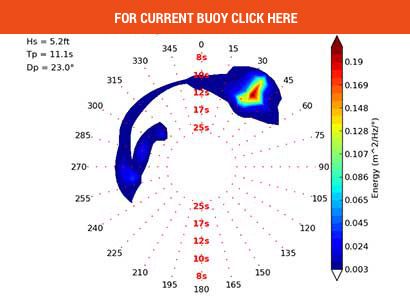
Surfers take note. A day may come when life vests aren’t needed.
Danish scientists are a step closer to helping those suffering from respiratory ailments thanks to a revolutionary new absorption crystal. Working out of the University of Southern Denmark the group has uncovered crystalline materials that are capable of pulling oxygen out of both air and water -which could eventually mark the end of the need to carry around large air tanks.
The revolutionary crystalline material can bind and store oxygen in high concentrations, then control its release time depending on what the user needs. This new discovery could even benefit deep sea divers, giving them superhero-like abilities to stay submerged for extended periods of time without an air tank.
The standard human body can function with only 12% oxygen in the air around us, but what if we needed it in higher concentrations?

This was the main subject of the study conducted at the University of Southern Denmark, with help from the University of Sydney, Australia.
Professor Christine McKenzie was the one who led the study, alongside Jonas Sundberg, Department of Physics, Chemistry and Pharmacy at the University of Southern Denmark.
The study involved about a bucket full (10 liters) of microscopic grains, and found them to be enough to completely suck the oxygen out of a room. Professor Christine McKenzie said:
“In the lab, we saw how this material took up oxygen from the air around us.”
The new material is smaller and lighter to carry than those currently used to obtain the same result. Professor McKenzie added:
“A few grains contain enough oxygen for one breath, and as the material can absorb oxygen from the water around the diver and supply the diver with it, the diver will not need to bring more than these few grains.
When the substance is saturated with oxygen, it can be compared to an oxygen tank containing pure oxygen under pressure – the difference is that this material can hold three times as much Oxygen.”
According to the study, the crystalline-made material was obtained by using x-ray diffraction, displaying the atomic behavior of the material while it’s full of oxygen – it was then emptied of it.
Professor McKenzie also revealed:
“An important aspect of this new material is that it does not react irreversibly with oxygen – even though it absorbs oxygen in a so-called selective chemisorptive process. The material is both a sensor, and a container for oxygen – we can use it to bind, store and transport oxygen – like a solid artificial hemoglobin.”
An unexpected aspect to the new development is the oxygen storing process, which turned out to be completely natural. The metal cobalt, which is the essential component in the new crystalline material, controls the process of absorption. It can provide the new material with the molecular and electronic structure that gives it the capability to steal oxygen from the air.
Christine McKenzie explains:
“It is also interesting that the material can absorb and release oxygen many times without losing the ability. It is like dipping a sponge in water, squeezing the water out of it and repeating the process over and over again.”
Professor Christine McKenzie also illustrated that there are many conditions that can influence the process, which may impact the time involved in the absorption process. The result will be different versions of the same material. That being the case, different options will exist to control the time of release. She added:
“When the material is saturated with oxygen, it can be compared to an oxygen tank containing pure oxygen under pressure – the difference is that this material can hold three times as much Oxygen.”
The potentiality of the absorbing crystal is virtually endless with its impact being felt in everything from the medical field to space exploration.
Sources:
(1) New material steals oxygen from air (The Main Study)
(2) New material steals oxygen from air (Science Daily)
(3) New Crystal Could Let Divers Breathe Underwater
(4) Scientists create crystal which would allow us to breathe underwater
Image: Mark Tipple – Barcroft Media





















